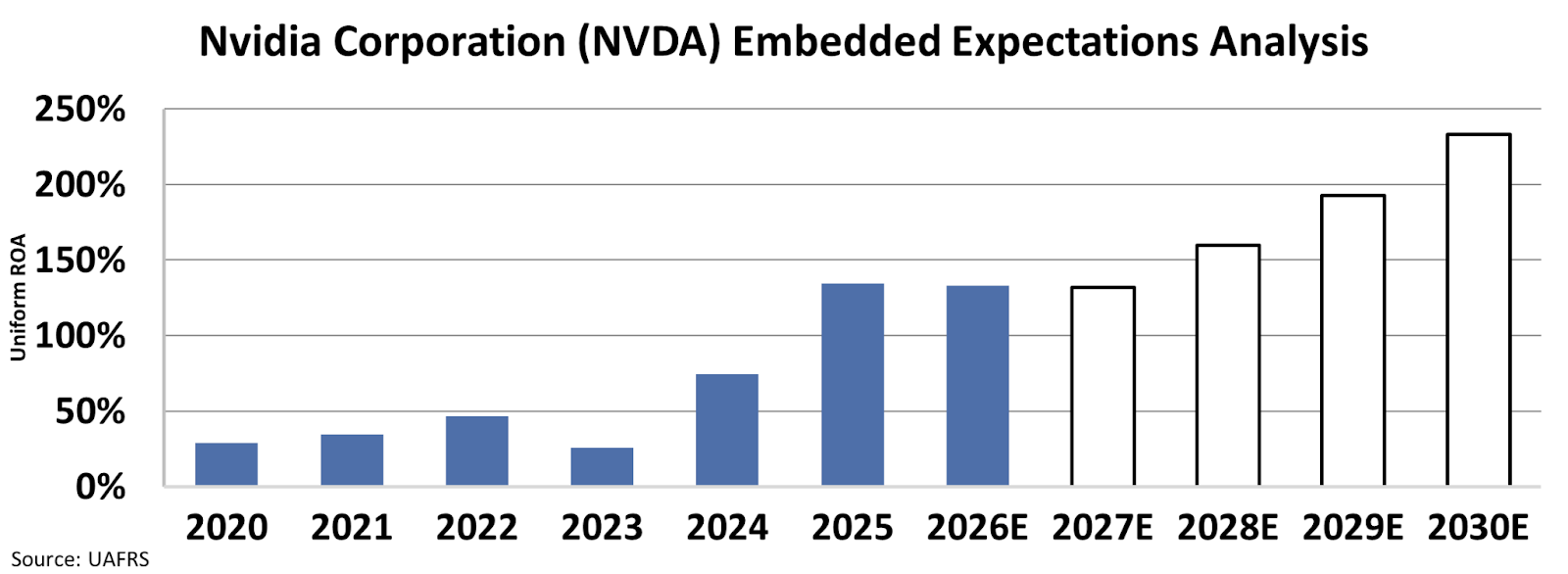One of tech’s biggest investors just sold his entire stake in this AI juggernaut

Earlier this week, billionaire investor Peter Thiel made headlines when it was revealed that he sold all of his stake in Nvidia (NVDA).
Nvidia is the biggest winner of the AI boom thus far, transforming its business from a billion-dollar giant to a trillion-dollar juggernaut in just a few years.
Thiel’s recent move comes amid investor fears of an AI bubble, especially as AI firms have entered into multi-billion dollar deals with each other.
Uniform Accounting reveals why Thiel no longer wants to continue betting on Nvidia.
Investor Essentials Daily:
Wednesday News-based Update
Powered by Valens Research
Billionaire investor Peter Thiel made headlines earlier this week when reports surfaced that his hedge fund, Thiel Macro LLC, sold its entire stake in Nvidia (NVDA).
Thiel’s hedge fund dumped over 537,000 shares—worth roughly $100 million, leaving the fund’s investments concentrated in fellow Mag 7 companies Apple (AAPL) and Microsoft (MSFT).
Thiel is best known for co-founding PayPal (PYPL) and software and data analytics firm Palantir (PLTR). Beyond co-founding these juggernauts, Thiel built his reputation by investing in companies such as Meta (META), Spotify (SPOT), SpaceX, Microsoft-owned LinkedIn, payment processor Stripe, defense firm Anduril, and OpenAI, one of today’s leading AI players.
Thiel’s outsized influence stems not only from his investments but also from his eponymous fellowship, which provides guidance and seed money to young entrepreneurs and startup founders.
By virtue of his reputation alone, any market move Thiel makes is bound to attract attention.
While his position in Nvidia represents only a tiny portion of its $4.5 trillion valuation, it comes at a time when investor concerns about a potential AI bubble dominate headlines amid circular, multi-billion dollar agreements between chipmakers, startups, data center firms, and other tech and AI companies.
However, Uniform Accounting highlights that Thiel’s move may be related to Nvidia’s valuations alone rather than a wider fear around an AI-bubble.
Nvidia has drastically transformed itself over the past five years. The company went from designing GPUs for gaming and other computational applications to a designer of advanced chips for AI workloads.
The company’s early investments into AI turned it from a $400 billion-dollar firm in 2022 to the world’s most valuable company as of 2025.
At present, the firm controls over 90% of the GPU market, driven by strong demand for its high-performance AI chips.
There’s no question that Nvidia is the biggest winner of the AI boom thus far, growing its Uniform return on assets (“ROA”) from an average of 34% between 2020 and 2023 to 75% in 2024. This year, returns grew further to a staggering 134%.
And investors are expecting the company to maintain this trajectory.
We can see this through our Embedded Expectations Analysis (“EEA”) framework.
The EEA starts by looking at a company’s current stock price. From there, we can calculate what the market expects from the company’s future cash flows. We then compare that with our own cash-flow projections.
In short, it tells us how well a company has to perform in the future to be worth what the market is paying for it today.
At current valuations, investors expect Nvidia’s Uniform ROA to continue to grow at breakneck speeds, reaching 232% by 2030.
These expectations are far from modest. Although Nvidia is the market leader for AI advanced chips, there’s no guarantee that it can sustain its advantage for the next five years. Any misstep by the company or new market entrants could lead to massive volatility.
Thiel doesn’t want to bet on Nvidia holding unchallenged control of the GPU market forever. His decision could be a sign for other investors to reconsider Nvidia’s current stock price and what future performance needs to be achieved to justify such rich valuations.
Best regards,
Joel Litman & Rob Spivey
Chief Investment Officer &
Director of Research
at Valens Research

